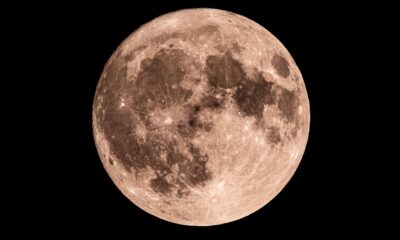Politics
Language Evolution: New Words Spark Confusion in Communication

Language is an ever-evolving entity, with new words constantly emerging and established terms often morphing into something unrecognizable over time. A recent commentary by TJ Ray highlights this phenomenon, emphasizing how contemporary language usage can sometimes lead to confusion. The article, published on October 29, 2025, explores how substitutions and newly coined terms can create misunderstandings.
One term, “lethologica,” describes the state of being unable to recall a specific word, a situation many experience in daily conversations. In such moments, individuals often resort to substituting words or inventing new ones altogether. LanguageMonitor.com reports that a new word is created approximately every 98 minutes, illustrating the dynamic nature of the English language. The language surpassed the milestone of one million words in 2009, underscoring its continuous growth.
Over time, words can change meaning and context, often losing their historical significance. For example, few people associate “Wednesday” with the god Odin or think of the “holy flounder” when mentioning “halibut.” This evolution can lead to linguistic discomfort, especially with the rise of phrases that seem to dilute the richness of language.
Recent examples from various platforms illustrate how this trend manifests. During a public announcement, a four-star admiral stated that “BP is our only modality for solving the problem.” The use of “modality” sparked confusion among listeners, raising questions about the clarity of communication in critical situations.
Television discussions often serve as fertile ground for such peculiar word choices. On a business channel, an expert suggested that a government initiative would “incent” the market, a term that many found awkward and inappropriate. Meanwhile, another analyst referred to the “analyzation” of a situation, a term that many linguists would argue is unnecessary and convoluted.
Sports commentary is not immune to this evolving language trend either. During a recent World Cup Soccer tournament, commentators frequently described players as possessing exceptional “physicality.” This vague term raises questions about what differentiates “physical” from “physicality.” In a sport where all players share the same physical demands, such descriptors can feel redundant or misleading.
The emergence of phrases such as “my bad” instead of “my mistake” has also drawn criticism for its casualness. Furthermore, politicians and public figures have contributed to the linguistic landscape with terms like “refudiate,” a blend of “refute” and “repudiate,” which highlights the blending and bending of language in public discourse.
As the commentary suggests, the challenges of adapting to new linguistic trends can be daunting, particularly for those who have long been accustomed to traditional language norms. The evolution of language is inevitable, but it often leaves behind those who struggle to keep up with its rapid changes. In the end, as TJ Ray notes, it may be fruitless to teach an old dog new tricks in this intricate world of words.
-

 World2 weeks ago
World2 weeks agoGlobal Air Forces Ranked by Annual Defense Budgets in 2025
-

 World2 weeks ago
World2 weeks agoMass Production of F-35 Fighter Jet Drives Down Costs
-

 Top Stories2 weeks ago
Top Stories2 weeks agoNew ‘Star Trek: Voyager’ Game Demo Released, Players Test Limits
-

 Top Stories2 weeks ago
Top Stories2 weeks agoDirecTV to Launch AI-Driven Ads with User Likenesses in 2026
-

 Science2 weeks ago
Science2 weeks agoTime Crystals Revolutionize Quantum Computing Potential
-

 World2 weeks ago
World2 weeks agoElectrification Challenges Demand Advanced Multiphysics Modeling
-

 Entertainment2 weeks ago
Entertainment2 weeks agoFreeport Art Gallery Transforms Waste into Creative Masterpieces
-

 Lifestyle2 weeks ago
Lifestyle2 weeks agoDiscover Reese Witherspoon’s Chic Dining Room Style for Under $25
-

 Health2 weeks ago
Health2 weeks agoGavin Newsom Critiques Trump’s Health and National Guard Plans
-

 Lifestyle2 weeks ago
Lifestyle2 weeks agoLia Thomas Honored with ‘Voice of Inspiration’ Award at Dodgers Event
-

 Entertainment2 weeks ago
Entertainment2 weeks agoFast & Furious Coaster Hits the Track at Universal Studios
-

 Science2 weeks ago
Science2 weeks agoWaning Crescent Moon: What to Expect on October 17








